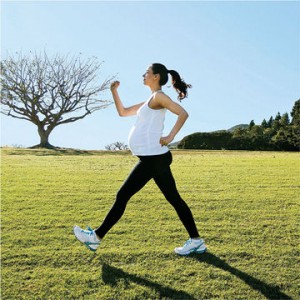There are so many old wives tales about what you should and shouldn’t do during pregnancy! We see pregnant women every day in the clinic, and a lot are uncertain if they should be exercising or not, or what type of exercise they should be doing.
At Reform Physiotherapy, we try our best to follow the most up to date evidence to guide us as health professionals. This is what the evidence currently says about exercising during pregnancy:
- NICE guidelines show that:
- Pregnant women should begin or continue a moderate course of exercise during pregnancy, and it is not associated with adverse outcomes, but should not do ‘contact sports, high‑impact sports and vigorous racquet sports that may involve the risk of abdominal trauma, falls or excessive joint stress, and scuba diving, which may result in fetal birth defects and fetal decompression disease’.recreational exercise such as swimming or brisk
- Walking and strength conditioning exercise is safe and beneficial with aim of recreational exercise is to stay fit, rather than to reach peak fitness.
- If women have not exercised routinely they should begin with no more than 15 minutes of continuous exercise, three times per week, increasing gradually to daily 30-minute sessions women exercised regularly before pregnancy, they should be able to continue with no adverse effects.
- It is important not to be sedentary, as far as possible. Start walking and to build physical activity into daily life, for example, by taking the stairs instead of the lift, rather than sitting for long periods.
Other evidence from the literature shows that exercise:
- May reduce pregnancy-related low-back pain and reduces sick leave more than usual prenatal care.
- Can help prevent pelvic floor urinary incontinence after having your baby.
- Reduce the risk of maternal weight gain.
- Reduce the risk of childhood obesity.
- Reduce the risk of gestational diabetes.
- May help with a faster recovery from labour and birth.
In summary, pregnant women are advised to try exercise x 30mins atleast 3 time a week at a moderate intensity exercise in an uncomplicated pregnancy. If the pregnant woman isn’t used to exercising before they fall pregnant, they should start off slowyl doing 15mins x 3/week and building it up slowly.
Examples of exercise that pregnant women should participate in are:
- Walking (brisk)
- Light jogging
- Swimming
- Pre natal exercise classes such as pilates/yoga
- Resistance exercise with weights (should be supervised to ensure correct technique). Also aim for lower weights and higher reps.
If you would like any more information on this, or would like to book an appointment to get a pre-natal exercise plan, call 086 3582911. Anne 🙂


